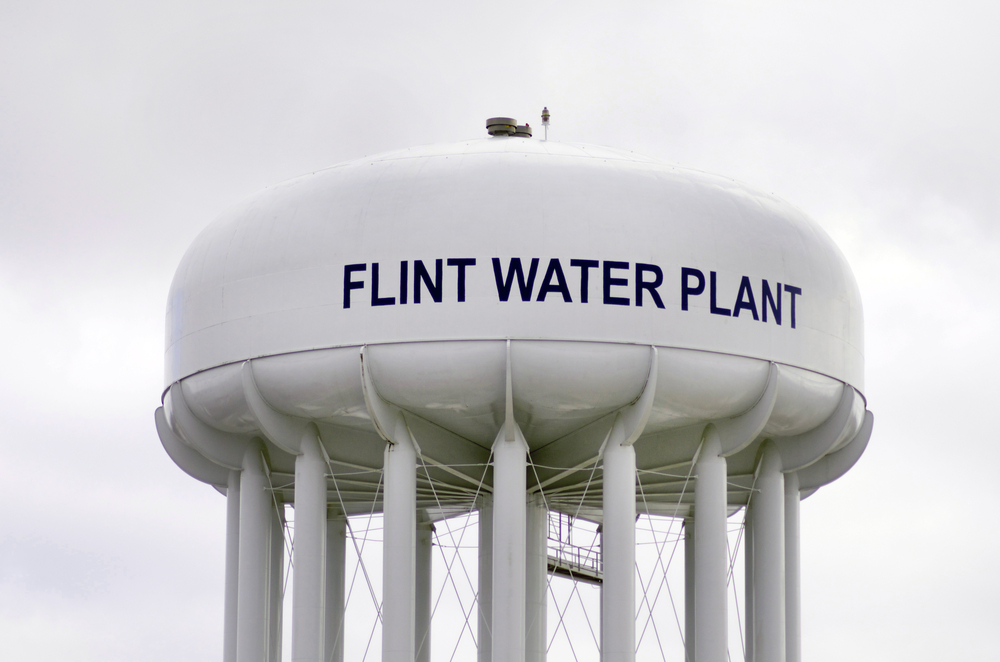Tips to Keep Your Drinking Water Clean
A few key points from experts on the Flint water crisis.

The water crisis in Flint, Michigan began in 2014. That’s when brown water began flowing from taps, and children tested positive for lead poisoning. Some of the worst-hit homes had lead levels 10 times higher than EPA limits.
Three years later, Flint’s water quality has improved, but officials are still recommending that citizens either drink bottled water or use a faucet filter at home. Why has it taken so long for Flint’s water quality to improve? We asked that question on our show last week. One takeaway is that Flint isn’t the only city with water quality problems.
Worried about water quality in your area? We compiled some key tips from our guests on last week’s show:
How do I know if lead pipes or safe copper pipes provide water to my house?
“One thing consumers can do is to go and try to identify the material that’s coming into their basement or the part of the service line that is coming into their house,” Marc Edwards, a civil engineering professor at Virginia Tech, who first tested Flint’s water in 2014, told SciFri.
But note that even if a copper or galvanized iron pipe comes into your house, it’s possible that there’s a lead pipe “somewhere out there that you don’t see,” said Edwards. “And so for that, you need the city to come and usually dig a hole in your yard, unfortunately.”
This helpful guide from NPR will show you how to determine if you have lead pipes in your home.
What kind of filtration system should I use?
If you think your water might be at risk for lead poisoning, Edwards recommends faucet filters over an expensive whole-house system.
“An in-the-faucet filter is the best approach, because it cleans the water that passes through all the lead pipes, and there’s no chance that the water will get contaminated after it flows from the faucet into your cup or a cooking utensil,” he told SciFri. “You’re cleaning it up right before you use it.”
Edwards noted that for aesthetic reasons, some people might choose to use a sediment filter or a whole-house filter that simply removes particles. But “these filters do have some drawbacks, especially the whole-house filters,” said Edwards. For example, deadly bacteria, such as Legionella, can grow in plumbing systems. Indeed, 12 people in Flint died “from one of the worst waterborne outbreaks of Legionella in U.S. history,” according to Edwards. “These whole-house filters sometimes have triggered Legionella bacteria levels to increase in home plumbing, so we’re a little bit reluctant to recommend these things.”
Is what happened in Flint also happening elsewhere in the U.S.?
@scifri I live in Pittsburgh PA-reports that we might be headed the way of Flint. Any information for us?
— Elizabeth C (@ewc) February 10, 2017
“It’s official that Pittsburgh has too much lead in their water, according to federal standards. They have worse lead than Flint right now,” Edwards told SciFri. If you live there, “you should follow the city’s advice to flush your water or use bottled water or filter, especially if you have a lead pipe.”

Edwards said that many cities have reassured people that their water was safe when it wasn’t. “There’s been exposes by The Guardian, by USA Today,” he said. “Realize that this spans the range from our biggest cities to our post-industrial cities to rural America. So this is why everyone is upset about Flint—because they have learned they can’t trust the water supply in their own city in many cases.”
But there’s some good news, too, according to Lindsey Smith, a reporter at Michigan Public Radio. “I think we’re seeing more testing and we’re seeing some cities going out and verifying and doing that work that should have been done in the 90s, when the lead and copper rule got passed.”
These quotes have been lightly edited for clarity. For a full transcript, click here and scroll down to “transcript.”
Dee Peterschmidt is a producer, host of the podcast Universe of Art, and composes music for Science Friday’s podcasts. Their D&D character is a clumsy bard named Chip Chap Chopman.